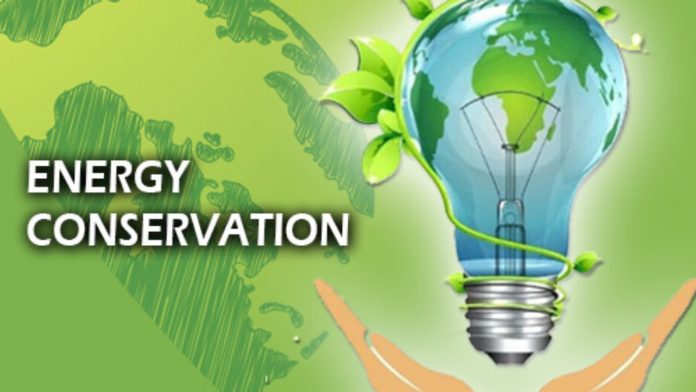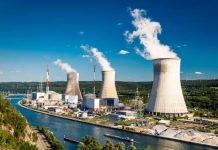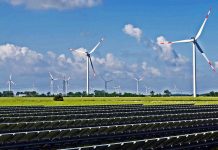This article is written by Utkarsh Singh, a student of Amity Law School, NOIDA. This is an exhaustive article that deals with the powers and functions of the Energy Conservation Act. This also explains salient features, energy conservation, its importance, and its objectives.
Table of Contents
Introduction
Energy is all around us. It’s flowing in our bodies, flying through the air, and beating down on us from the sun. It’s everywhere. But the question is what is energy exactly? And how is it conserved?
Energy preservation does not mean using or creating a limited resource as long as they can but it would mean that we are digging our hole which is one-day energy will finally run out. Conservation is the procedure of decreasing the requirement of the limited supply, creating a situation where it starts to rebuild itself. In many cases, it is best to substitute the used energy with another alternative. Fossil fuels can be conservated by finding new resources and by substituting them so that the oil and other resources do not run out completely. This will make the oil field get filled faster. This type of process will not happen in a few days or years; it will take 100’s of years to retrieve the damage that the human race has done to the earth’s natural resources.
Conservation of energy means that one person has to adopt a habit to conserve energy like when we are not in the room and the light is on then we switch off the light or we have to shut down the computers in place of putting them in sleep mode. The phrase is often confused with ‘efficient use of energy. It means that handling the items in day to day life that are energy-efficient and ensuring that they are working fine. Preservation of energies not only makes the earth greener but also it saves the energy resources from getting finished, it also lessens the appliances functioning cost and increases the life of the appliances which are used. All this saves them money and work from the companies in the long run and helps them to be more competitive.
During the ninth five-year plan the need for an Energy Conservation Act was realized. Seeing the huge potential of energy saving and the profit of energy efficiency the government of India decided to enforce the Energy Conservation Act, 2001. It extends to the whole country except Jammu and Kashmir. The Act accommodates the legitimate system and institutional plans of an administrative instrument at the Central and State levels to leave upon a vitality effectiveness drive in the nation.
Importance of energy conservation
Energy conservation takes an important part in reducing the effects of climate change. It helps in the supplanting of non-renewable assets with renewable energy. Energy conservation is the most less expensive way to energy shortages and it is an alternative that is done by nature and increases energy production with the help of nature. Since we have a constrained amount of non-sustainable power source assets accessible on earth, it is imperative to save the exhaustible resources or to use inexhaustible assets with the goal that it is likewise accessible to our people in the future. Energy conservation has an important part because using non-renewable assets also affects our environment. Specifically, we use fossil fuels to pollute air and water by carbon dioxide which is produced by coal, oil, and gas combustion in the heating system, power stations, and engines of cars.
As we all know that carbon dioxide or greenhouse gas makes a thin layer in the atmosphere that causes global warming on earth or we can say that it causes the greenhouse effect. Our earth’s atmosphere is dangerously affected by global warming and it has other consequences also. It has lethal impacts like the spreading of various illnesses, hotter waters, and more odds of tropical storms, monetary costs, polar ice dissolving, expanded possibilities, and the force of heatwaves. Chemical pollution in the uppermost layer of the atmosphere causes a reduction of the protective layer of ozone which is called ozone depletion. The ozone layer is the protective layer between rays emitted by the sun and the earth. The ones who are exposed to sun or ultraviolet rays more can have serious health problems like skin cancer, DNA damage, or other serious skin problems.
There could be some potential issues that can incorporate the harm to the health of the human body, influence on nature like an increase in sea level, and changes in the growing of trees and plants. When a fossil fuel is burned it releases a gas that goes into the air and reacts with water and oxygen to make acid rain. Acid rain slaughters fish and trees and harms limestone structures and monuments. These kinds of worldwide issues can be settled.
Energy conservation in India
The growing requirement for energy has led to the burning of fossil fuels in a large amount which directly impacted the environment. It is very important to use energy efficiently and its conservation is the top priority. There is a study where it is said that nearly 25000 Megawatt can be conserved if we use end-use energy and demand-side management measures throughout India. If one person proficiently uses power or conserves it by only one unit then the need for fresh energy will be reduced by 2 times or 2.5 times. By saving energy or using it efficiently it can lessen the cost of energy by one-fifth as compared to fresh energy creation. By using energy efficiently it would significantly supplement our efforts to meet power requirements apart from reducing fossil fuel consumption.
However, India is in the 6th position in the list of energy consumption but it is less because Indian development is faster and it needs more energy. In a study, it is proven that the finite known oil and natural gas resources may dry up in 18 years to 26 years, which is a concern, on the other hand, the known coal reserves may last for more than 200 years. The growing population is increasing the consumption of petroleum fuel in commercial energy is bound to lead to more dependence on imports and energy insecurity. India’s vitality force per unit of GDP is higher when contrasted with Japan, U.S.A. Also, Asia by 3.7 times, 1.55 times, and 1.47 times individually.
This says that the inefficient use of power but also substantial scope for energy saving. The growing trade liberalization and increasing world competition have improved productivity, and also lessens the power cost and an important example of economic success. However, a change is needed in the thinking of energy or power conservation policy.
The Energy Conservation Act, 2001
This act was made by the Indian government and afterward, in august 2010 it was amended as the Energy Conservation (Amendment) Act 2010 and the objectives of the Energy Conservation Act-2001 are:
- To give policy on which it works and suggestions to national power conservation activities.
- Suggest the stakeholders how to make policies and programs on efficient use of power.
- Setting up a way and procedures to check the measurements and monitor BEE improvements.
- Influence multilateral, respective, and private division backing to execute the Energy Conservation Act.
- Show BEE conveyance frameworks through public and private organizations.
- To advertise the phenomenon of energy efficiency and conservation in the country.
Salient features of Energy Conservation Act, 2001
This act gives the power to the central government and in some cases, the state also gets the power to:
- Fix the energy usage standards for specific appliances and equipment.
- Give direction that there should be a mandatory display of labels specific equipment and appliances.
- Stop the building, import, and sale of the items which are not to the standards.
- Inform energy concentrated businesses, different foundations, and business structures as assigned customers
- Set up and recommend energy utilization standards and guidelines for assigned buyers
- Prescribe or make changes in Energy Conservation Building Codes (ECBC) to local conditions for energy conservation and efficient use of energy in a new commercial building with a contract load of 500 kW.
- Make and provide Central and State Energy Conservation Fund
Bureau of Energy Efficiency
The important feature of the of this Act has established a statutory body called the Bureau of Energy Efficiency (BEE). It aims to decrease the usage of power and energy intensity in the economy. In this provision of the Energy Conservation Act, 2001 the Bureau of Energy Efficiency has been set up with effect from day one of march 2002 by joining the earlier energy management center, which was the society under the ministry of powers. The bureau would be liable for initiating the improvement of vitality proficiency of the economy through different administrative and limited time instruments.
The Bureau of Energy Efficiency is to create approaches and methodologies with a push on self-guideline and market standards, inside the general system of the Energy Conservation Act, 2001 with the essential goal of decreasing the vitality power of the Indian economy. This will be accomplished with dynamic cooperation, all things considered, bringing about a quickened and continued reception of vitality effectiveness in all segments of the economy.
Objectives
The initial aim of the Bureau of Energy Efficiency (BEE) is to decrease the energy intensity in the Indian economy through the taking up of a result-oriented approach. The broad aims of the Bureau of Energy Efficiency (BEE) are:
- To suppose leadership and give policy system and guide to national energy efficiency and conservation programs and efforts
- To direct the stakeholders about the policies and programs on using energy efficiently
- To set up a framework and procedures to monitor, verify and measure the efficient use of electricity in individual sectors as well as at the national stage
- To use multi-horizontal, bi-sidelong, and private segment support in the execution of the Energy Conservation Act and projects for effective utilization of energy and its preservation
- To show the delivery mechanisms of energy efficiency, by a public and private partnership
- To manage, implement, and plan energy conservation policies as given in the Energy Conservation Act.
Powers of the Energy Conservation Act
Powers of central government
Central Government may, by notifications in consultation with the Bureau:
- Fix the rules for the functioning and power consumption standards for any item, equipment, or appliances that makes, uses, gives energy or supplies energy.
- Certain appliances or equipment or types of equipment or appliances, as per case may be given for this act.
- Stop the production or purchase or sale or import of appliances or equipment given under Clause (b), except for such appliances that maintain the energy consumption standards.
- Given that no notification stopping the production or purchase or sale or import of appliance shall be given within a time frame of six months from the given date or notified date.
- Given that the central government may, having concern to the market share and the development in a technological way having an impact on appliances, and for a reason to be recorded in writing extend the said period of six months referred to in the first proviso by a further period not exceeding six months.
- direct show of some particular tags on an appliance or equipment exactly and in such manner, as may be specified by-laws.
- Change the list of Energy Intensive Industries exactly given in the schedule.
- Make or give such energy consumption laws and standards for the specified consumer as it may be said or considered important.
- Given that the Central Government may recommend various standards and gauges for various assigned shoppers having seen to such factors as might be recommended.
- Directly having respect to the amount of energy utilization the energy escalated enterprises indicated in the timetable to get energy review directed by a licensed energy examiner in such way and periods as might be indicated by guidelines.
- Govern whenever thought about the importance for productive utilization of energy and its preservation also, assigned purchasers to get energy review directed by a to authorize energy inspector.
- Determine the issues to be incorporated for the reasons for review.
- Govern any assigned user to outfit the assigned office in such structure and way and inside such period, as might be endorsed, the data as to the energy devoured and actions are taken on the suggestion of the authorized energy examiner.
- Govern any assigned user to assign or appoint an energy manager which supervises the activities for the efficient use of power and it saving and give a report, informs and ways as may be given, on the status of energy consumption when the financial year finishes to the assigned agency.
- Impose less qualification for an energy manager to be assigned or appointed under clause (I).
- Govern any assigned user to follow energy consumption laws and standards
- Direct any assigned purchaser, who doesn’t satisfy the energy utilization standards and guidelines recommended under clause (g), to set up a plan for effective utilization of energy and its preservation and actualize such plan, keeping considering the monetary reasonability of the interest in such structure and way as might be recommended.
- Determine energy conservation building codes for well-planned use of energy conservation in the making of the complex.
- Change the energy conservation building code as suitable by the localized and regionally area climate conditions.
- Govern energy owners or who have the building complex, being an assigned user to follow the laws of Energy Conservation Building Codes for proper use of energy and its conservation.
- Govern, any assigned purchaser alluded to in clause (r), whenever considered important for effective utilization of energy and its protection in his structure to get energy review, led regarding such structure by a licensed energy inspector in such way and periods as might be indicated by guidelines.
- Take all estimates important to make mindfulness and disperse data for effective utilization of energy review and its protection.
- Manage and arrange training of specialists and personnel in the techniques for efficient use of energy and its conservation.
- Find a way to support particular treatment for utilization of energy-productive hardware or machines; given that the forces understatements (p) and (s) will be practiced in an interview with the concerned state. Section 14 A(1) of the Energy Conservation Act The Central Government may give the energy-sparing declaration to the assigned buyer whose energy utilization is not exactly the recommended standards and measures as per the technique as might be recommended. The assigned buyer whose energy utilization is more than the endorsed standards and guidelines will be qualified to buy the energy sparing authentication to follow the recommended standards and principles.
Power of state government
The State Government may, by notification, in consultation with the Bureau:
- Change the energy conservation codes of buildings to a suitable condition like local or regional climate conditions and may, by rules made by it, specify and notify energy conservation building codes concerning the use of energy in the building.
- Govern every owner of the building complex is an assigned user to follow with the laws of the energy conservation building codes.
- Direct, whenever thought-about essential for proficient utilization of energy and its protection, any assigned customer alluded to in provision (b) to get energy review directed by a to authorize energy examiner in such way and at such periods as might be determined by guidelines.
- Assign any firm as an assigned firm to coordinate, enforce, and regulate provisions of this Act within the state.
- Take all steps important to make aware of the use of energy efficiency and how to conserve it.
- Manage and provide training to the people and specialists in the ways, to use energy efficiently and they can conserve it.
- Find a way to support special treatment for utilization of energy effective hardware or equipment.
- Govern, any assigned purchaser to outfit the assigned office, in such structure and way and inside such period as might be indicated by rules made by it, data concerning the energy devoured by such purchase.
- Specify the issues to be included for the work of inspection under subsection (2) of section 17 of the Energy Conservation Act, 2001.
Power of inspection
The assigned firm may be nominated after five years from the date of the beginning of this act is expired, as many invigilator officers as may be important for the grounds of making sure compliance with energy consumption standards given under the clause (a) of section 14 of Energy Conservation Act or for the cause of working such other work given to them.
Subject to any standards made under this Act, an investigating officer will have the power to:
- Check any action carried on or in link with the appliances or the equipment specified under clause (b) of section 14 or in respect of which energy standards under clause (a) of Section 14 have been specified.
- Enter wherever of the assigned buyer at which the energy is utilized for any movement and may require any owner, representative, chief, administrator or secretary or on the other hand whatever other individuals who might be going to in any way to as aiding in, conveying on any action with the assistance of energy.
Section 18 of the Energy Conservation Act says that the central or the state government may work in the power and performance of its functions under this act and for effective use of energy and its preservation, issue such headings recorded as a hard copy as it considers fit for the reasons for this Act to any individual, official, authority or any assigned shopper and such individual, official or authority or any assigned customer and such individual, official or authority or any assigned purchaser will be bound to agree to such bearings. Explanation For the avoidance of doubts, it is hereby declared that the powers to issue directions under this section include the power to direct:
- Regulation of norms for process and energy consumption standards in any industry or building or building complex.
- Regulation of the energy consumption standards for equipment and appliances.
Functions of the Energy Conservation Act
The functions of the bureau can be classified as regulatory functions being recommended body to the Central Government in implementing the provisions of the Energy Conservation Act and facilitation, market development and market transformation functions, such as:
- Suggested to the central government the laws for functioning and energy usage rules required to be notified under clause (s) of section 14.
- Suggest to the central government that certain tags are displayed or shown on the equipment or item and the manner of their displacement is under clause (d) of section 14.
- Suggest to the government or tell any user or type of users of energy as assigned consumer under clause (e) of section 14.
- Take the required steps to tell the laws for Energy Conservation Building Codes under clause (p) of section 14.
- Manage or train the person and specialized men in the techniques for how to use energy efficiently and tell ways to conserve it.
- Make more powerful advising authorities in the field of energy conservation.
- Advertise and uplift the research and new inventions in the field of energy conservation.
- Grow trials and certification process and uplift trail authorities for certification and trail for energy usage of the appliances and equipment.
- Detail and encourage the execution of pilot undertakings and show of ventures for the advancement of proficient utilization of energy and its preservation
- Uplift the use of efficient energy processes, equipment, devices, and systems.
- Uplift new financing of energy efficiency projects.
- Give financial support to the firm for promoting energy efficiency and its conservation.
- Duty charges, as might be resolved guidelines, for administrations accommodated advancing effective utilization of energy and preservation.
- Keep up a rundown of certifying energy evaluators as might be determined by guidelines
- Determine, by guidelines, the way and periods in which the energy review will be directed.
Grants
Central government
- There should be a fund that shall be called the central energy conservation fund.
- Section 19 of the energy conservation act takes care of any loans or grants made to the Bureau by the Central government.
- Under this Act, all fees received by the Bureau and all the funds received by the bureau from another place may be decided by the government.
- The fund shall be applied for the meeting where the allowance and salary of the secretary, officers, director-general, and other employees of the bureau.
- Under section 13 of the Energy Conservation Act, there is expenditure and its functioning of expenditure of the bureau.
- Under sub-section (5) of section 4 of the energy conservation act the allowances and fee to be paid to the members of the governing council.
- Expenses on objects and for purposes authorized by this Act.
State government
- The state government will comprise a reserve to be known as the State Energy Conservation Fund for the reasons for the advancement of productive utilization of energy and its protection inside the state.
- The store will be credited with all awards and advances that might be made by the state government or central government or some other association or individual for the reason for this Act.
- The store will be applied for meeting the costs brought about for actualizing the arrangements of this Act.
- The reserve made under sub section (1) of Energy Conservation Act will be controlled in such way as might be indicated in the principles made by the State Government
Penalty
If anyone fails or faults to follow the guidelines of the clause ( c ) of the clause (d) or the clause (h) or the clause (i) of the clause (k) or the clause (l) or the clause (n) or the clause (r) or clause(s) of section 14 or clause (b) or clause (c) or clause (h) of Section 15, they will be liable to pay the penalty which will be less than ten thousand rupees for each fault and in the situation where he continuously faults, which is an additional penalty which may extend to one thousand rupees per day during which these faults continues. It is an exception that no one will be liable to the penalty within five years of the date of starting of this Act. the amount not paid may be recovered by taking up the land revenue.
The Energy Conservation (Amendment) Bill was introduced in the Lok Sabha on March 8, 2010. The Bill increases the penalty specified for offenses committed under the Act. Each offense shall attract a penalty of Rs 10 lakh (Rs 10,000 earlier), with an additional penalty of Rs 10,000 for each day that the offense remains (Rs 1000 earlier). The additional penalty, for those industries who consume energy above norms, will be the value of the excess energy consumed.
Conclusion
December fourteenth is commended as World Energy Conservation day. Energy protection is a strategy to decrease energy demand. Monitoring energy is a significant method to lessen the strain on nature and cut down power costs. Energy preservation supports the eco-friendly way of life by giving energy, which sets aside cash and simultaneously saves the earth.
References
- http://indianpowersector.com/home/2010/10/energy-conservation-act-2001/
- http://www.hellocounsel.com/energy-conservation-act-2001-bare-act/
- https://iasscore.in/ias-prelims/bureau-of-energy-efficiency
- https://indiankanoon.org/search/?formInput=energy+conservation+act+2001
LawSikho has created a telegram group for exchanging legal knowledge, referrals and various opportunities. You can click on this link and join:
 Serato DJ Crack 2025Serato DJ PRO Crack
Serato DJ Crack 2025Serato DJ PRO Crack











 Allow notifications
Allow notifications


